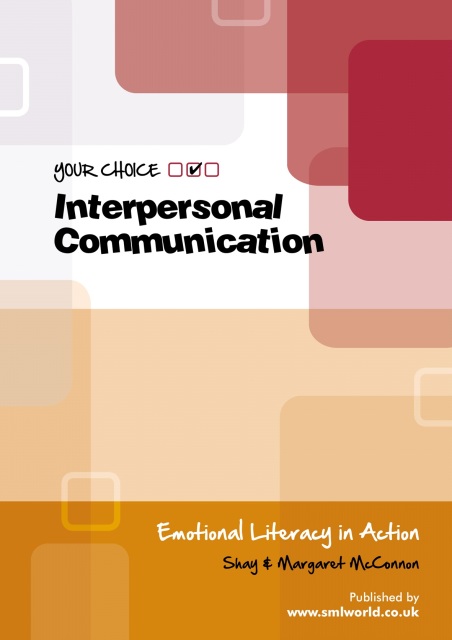- PSHE Secondary
- >
- Your Choice: Interpersonal Communication Programme
SKU:
Ref:11-909W
Your Choice: Interpersonal Communication Programme
£29.99
£29.99
Unavailable
per item
By Shay and Margaret McConnon
This programme aims to heighten awareness of and provide practice in the skills of interpersonal communication, together with opportunities for self-assessment and the identification of behaviour goals.
Communication is a fundamental human skill and is the basis of all personal relationships. The quality of our interpersonal communication often determines the quality of these relationships.
There are two major aspects of communication: the ability to express oneself and the ability to
listen. Communication problems are more often related to poor listening than to those of self-expression; hence there is an emphasis on listening in this course.
Strategies 1 -2
Help young people to an awareness of their own thoughts and feelings on interpersonal communication issues and to the idea that communication is a two-way process which requires both the speaker and the listener to be actively involved.
Strategies 3-4
The role of body language is explored.
Strategies 5-7
The skills of listening actively and reflectively in both verbal and non -verbal ways are identified and demonstrated.
Strategies 8-9
Behaviours that hinder and block interpersonal communication are identified and students assess themselves on these.
Strategies 10- 11
Students assess themselves.
Strategies 12-13
The module concludes by recapping on the nature and practice of interpersonal communication and finally with an evaluation of the students' responses to this course.
Pages 42
listen. Communication problems are more often related to poor listening than to those of self-expression; hence there is an emphasis on listening in this course.
Strategies 1 -2
Help young people to an awareness of their own thoughts and feelings on interpersonal communication issues and to the idea that communication is a two-way process which requires both the speaker and the listener to be actively involved.
Strategies 3-4
The role of body language is explored.
Strategies 5-7
The skills of listening actively and reflectively in both verbal and non -verbal ways are identified and demonstrated.
Strategies 8-9
Behaviours that hinder and block interpersonal communication are identified and students assess themselves on these.
Strategies 10- 11
Students assess themselves.
Strategies 12-13
The module concludes by recapping on the nature and practice of interpersonal communication and finally with an evaluation of the students' responses to this course.
Pages 42

